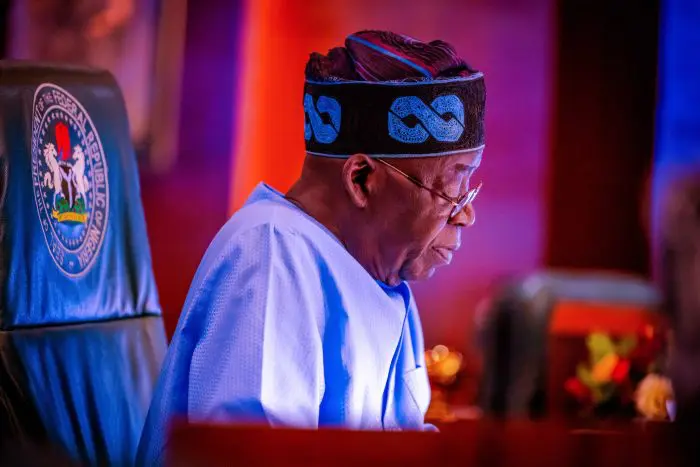Nigeria’s President Rejects Bill to Increase Tenure and Retirement Age of Legislative Officers
In a surprise move, Nigerian President Bola Tinubu has declined to sign a bill that aimed to increase the tenure and retirement age of legislative officers at the National Assembly and state Houses of Assembly. The decision was revealed in a letter read on the floor of the Senate on Tuesday by Senate President Godswill Akpabio.
The bill, which had been put on hold in February 2024 for further examination and consultations with stakeholders due to significant opposition from senators, suffered another setback. The President’s letter emphasized that the decision was made in accordance with the powers vested in him by the Constitution of the Federal Republic of Nigeria.
The bill had proposed to increase the tenure of legislative officers, including the Senate President and Speaker of the House of Representatives, from four to six years. It also aimed to raise the retirement age from 60 to 65 years. However, the proposal faced stiff opposition from senators, who argued that it would lead to abuse of power and undermine democratic institutions.
In his letter, President Tinubu acknowledged the diligent work of the Senate in drafting and passing the bill, but declined to sign it due to the concerns raised by the senators. He expressed hope that the Senate would receive his decision with understanding, and assured them of his highest regard.
The decision is seen as a victory for the senators who opposed the bill, and a setback for those who advocated for its passage. The outcome is likely to have far-reaching implications for the Nigerian political landscape, and could potentially impact the country’s democratic institutions.
The news has sent shockwaves across the country, with many Nigerians reacting to the decision on social media. While some have hailed President Tinubu’s decision as a victory for democracy, others have criticized it as a betrayal of the bill’s supporters.
As the debate continues, one thing is clear: the controversy surrounding the bill has sparked a national conversation about the role of legislative officers and the need for reforms in Nigeria’s political system.
